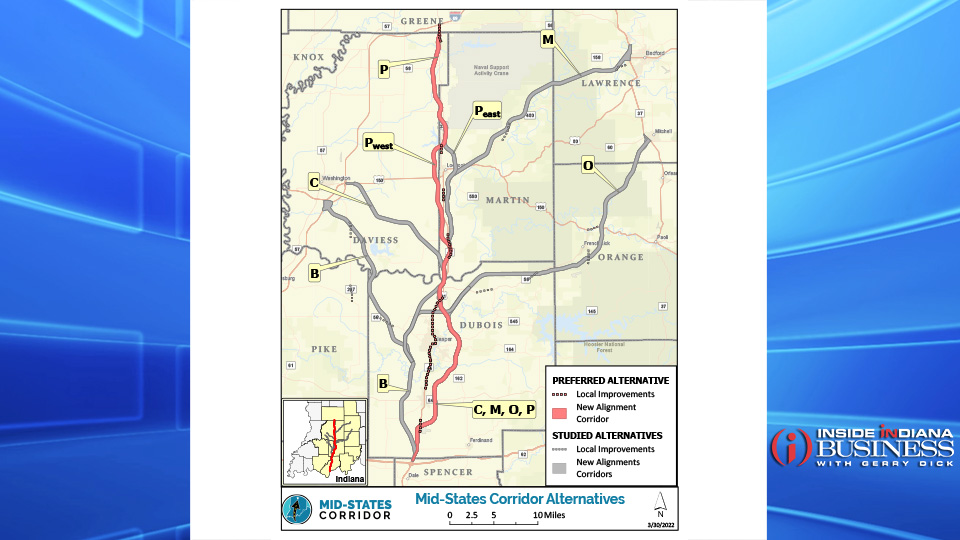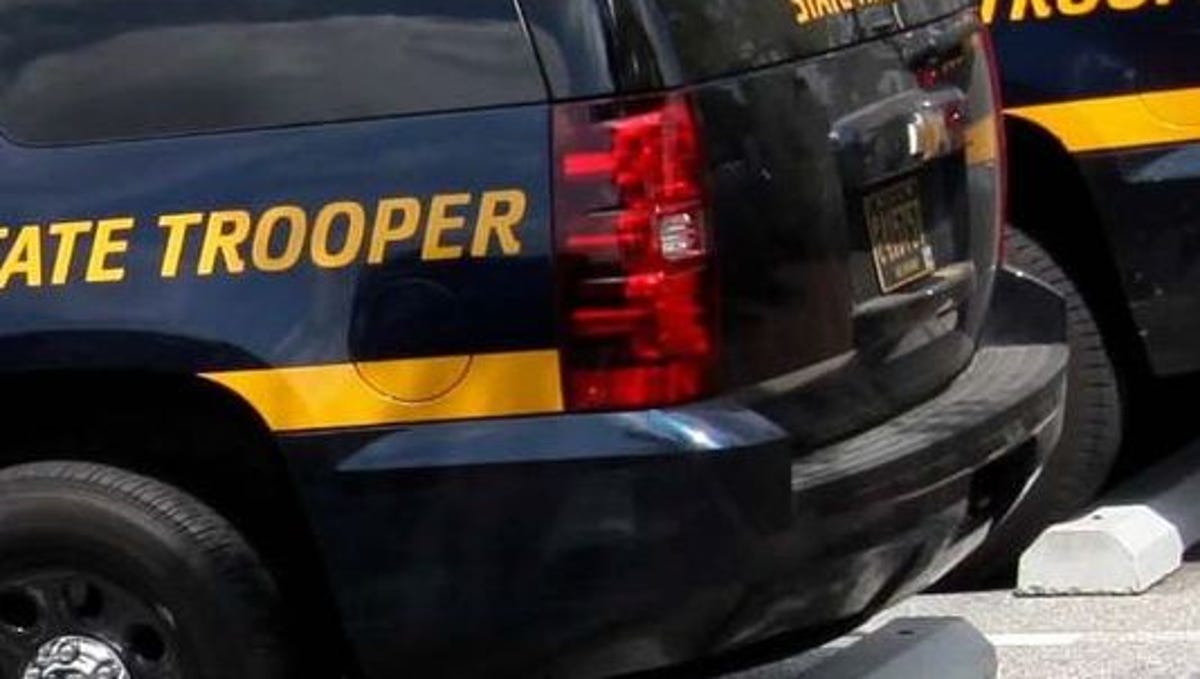Indiana
Supreme Court rejects appeal from Indiana parents who lost custody of transgender teen
WASHINGTON — The Supreme Court declined to decide Monday whether an Indiana couple who believe children should be raised based on their sex at birth should have lost custody of their teenager, a transgender girl.
The court, without comment, rejected an appeal from the teen’s parents, who had warned that cases similar to theirs are likely to reoccur “due to developing conflicts between parents and their children concerning gender identity.”
“With increasing frequency, governments run roughshod over parents’ religious beliefs on gender identity, including removing children from parents, favoring certain beliefs in divorce custody disputes, and preventing adoptions,” lawyers for Mary and Jeremy Cox of Anderson, Indiana, told the court in their appeal. “These cases are sure to proliferate.”
The state said the parents, who are self-described devout Christians, lost custody not because of their views but because of the medical necessity of addressing the teen’s severe eating disorder.
A provision of Indiana law that is similar to statutes in nearly every state allows government intervention in “a variety of situations in which even well-intentioned parent find themselves unable to prevent serious harm,” the state told the court.
Indiana also argued that the custody dispute is no longer relevant because the teen, who was 16 when removed from the home, is now an adult.
IndyStar Investigations: Law prompted by IndyStar/ProPublica reporting increases scrutiny of abuse at youth centers
Supreme Court rejects chance to weigh in on transgender student rights
The Supreme Court rejected an appeal by an Indiana public school district, declining to intervene in the debate over bathrooms for transgender students.
Wibbitz – News
Mary and Jeremy Cox, self-described devout Christians, lost custody of their trans teen
The case began in 2021 after the Indiana Department of Child Services received two reports of abuse or neglect, both related to the teen’s transgender identity. One accused the parents of verbally and emotionally abusing their child because they did not accept that the teen was transgender, according to court records.
After hearings, a judge ordered the teen be removed from the parents’ custody, get treated for the eating disorder and participate in individual and family therapy. The state dropped allegations of parental abuse or neglect but argued the teen’s eating disorder might worsen if the parents regained custody.
The parents were told not to discuss transgenderism with their child outside of the therapy sessions because of the connection between those conversations and the eating disorder.
The Coxes, who are identified in the court filings by their initials, said the state violated their parental rights, their free speech and their free exercise of religion.
“M.C. and J.C. seek only to raise their children according to their religious beliefs and best judgment,” they told the court. “This case is about the state taking a child from fit parents.”
The Indiana Court of Appeals sided with the state, and the Indiana Supreme Court declined to review the case.
“The Parents have the right to exercise their religious beliefs,” the appeals court said, “but they do not have the right to exercise them in a manner that causes physical or emotional harm to Child.”
Contributing: Kristine Phillips, Indianapolis Star

Indiana
Pierogis not the only star of Pierogi Fest in Whiting, Indiana

Watch CBS News
Be the first to know
Get browser notifications for breaking news, live events, and exclusive reporting.
Indiana
First Tier 2 study for Mid-States Corridor project to begin – Inside INdiana Business

Loading audio file, please wait.
The team behind the Mid-States Corridor Project in southern Indiana has received approval from the Indiana Department of Transportation to proceed with its first Tier 2 study.
The study will be the first of several to determine the alignment and access plan for the new highway, which is being designed to connect I-64 to I-69 through Spencer, Dubois and Martin counties.
The first Tier 2 study will focus on what’s known as Section of Independent Utility 2, or SIU 2, which extends from Interstate 64 near Huntingburg and Jasper to State Road 56 at Haysville in Dubois County.
The goal of the study is to “evaluate more site-specific impacts to determine the specific preferred location and right-of-way needs” for the highway. The study of SIU 2 is expected to take about three years to complete.
Early activity of the study will include survey work and data analysis, the project team said.
Mid-States Corridor rolls forward with business sector support, community blowback
In March 2023, the project team identified a refined preferred route alternative, known as Alternative P, which would run 54 from the I-64/U.S. 231 interchange up to I-69 near Odon.
The Final Environmental Impact Statement (FEIS) issued last September said four new alignment SIUs will each require a separate Tier 2 analysis and are expected to take place sequentially, rather than concurrently.
“Securing and programming funding to complete construction of each SIU may take nine to 15 years in several distinct phases of three to five years,” the FEIS said.
The Tier 2 studies for the remaining SIUs have not been scheduled.
Story Continues Below
Indiana
Parents can safely surrender babies up to 30 days old due to Indiana’s safe haven law

The deaths of two abandoned babies left out in the elements became foundational in establishing Indiana’s Safe Haven Law.
After the discovery of these babies, the state’s opinion on parents who couldn’t care for their babies shifted, which is why there are safe haven laws today.
Here’s what to know.
Baby Ephraim was a baby found dead outside a hospital emergency room on Jan. 26, 2000. He died of hypothermia.
While the parents clearly wanted their baby to receive the care he needed, it was determined that the fear of prosecution is what deterred the parents from handing their child directly to a nurse inside the hospital.
Indiana had been mulling legislation like many states across the country, but Ephraim’s death would solidify their decision and on March 24, 2000, then-governor Frank O’Bannon signed the Indiana law.
Although the law didn’t exist to help Ephraim, it should have saved Baby Jacob.
Just a year later, on Dec. 8, 2001, Jacob was found dead in a trashcan by workers outside a laundromat. He was wrapped in a sheet, several shopping bags and a trash bag. He still had his umbilical cord attached to his tiny body.
At this point, Indiana’s Safe Haven law had been enacted for 18 months, but few people in Indianapolis knew. Jacob’s death would change that by prompting a widespread awareness campaign.
Read the full story: 2 babies found dead outside were buried in unmarked graves. How they changed Indiana law
Indiana’s Safe Haven Law allows for the anonymous surrender of an infant 30 days old or younger without prosecution. Infants may be surrendered at fire departments, hospitals and emergency medical services stations. So long as there are no signs of intentional abuse or neglect, the person surrendering the child is not required to provide any information.
Developed by Monica Kelsey, who learned as an adult that she had been abandoned at a hospital after birth, safe haven baby boxes are devices installed in an exterior wall of fire stations or hospitals that allow for the anonymous surrender of an infant. The first box was installed at a fire station in Woodburn, Indiana, near Fort Wayne, in 2016.
The device is a two-way box, with a door inside and outside the building. The boxes are temperature controlled and programmed with several silent alarms to alert first responders. A silent alarm is triggered when the outside door is opened, when the baby is placed in the bassinet and again when the door is closed and automatically locked.
First responders retrieve the baby from inside the building and transport the infant to an area hospital for medical evaluation. The Department of Child Services then assumes custody of the child.
Do people actually use safe haven baby boxes?
Yes. In 2017 and 2018, babies were surrendered in a box at a Michigan City, Indiana, fire station. Delays in construction meant a box was still not ready when a baby was surrendered at Decatur Township Fire Department on Indianapolis’ southwest side in 2018. The infant was found healthy.
In October of 2023, IndyStar reported that a baby box in Carmel was one of the most used in the country.
According to Kevin Albin from Safe Haven Baby Boxes, 2 babies have been surrendered via baby boxes in the state this year, with many more being surrendered directly to personnel using the national crisis hotline.
Previously: More infants are left in this Indiana baby box than anywhere else in the country
In Indiana, parents can surrender babies that are up to 30 days old either face to face or via baby boxes without facing prosecution.
You can check Safe Haven Baby Box’s website to find the nearest baby box.
Katie Wiseman is a trending news intern at IndyStar. Contact her at klwiseman@gannett.com. Follow her on Twitter @itskatiewiseman.
-

 World1 week ago
World1 week agoOne dead after car crashes into restaurant in Paris
-

 Midwest1 week ago
Midwest1 week agoMichigan rep posts video response to Stephen Colbert's joke about his RNC speech: 'Touché'
-

 News1 week ago
News1 week agoVideo: Young Republicans on Why Their Party Isn’t Reaching Gen Z (And What They Can Do About It)
-

 Movie Reviews1 week ago
Movie Reviews1 week agoMovie Review: A new generation drives into the storm in rousing ‘Twisters’
-

 News1 week ago
News1 week agoIn Milwaukee, Black Voters Struggle to Find a Home With Either Party
-

 Politics1 week ago
Politics1 week agoFox News Politics: The Call is Coming from Inside the House
-

 News1 week ago
News1 week agoVideo: J.D. Vance Accepts Vice-Presidential Nomination
-

 World1 week ago
World1 week agoTrump to take RNC stage for first speech since assassination attempt



















